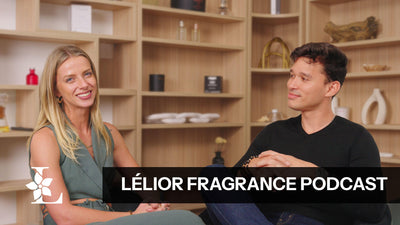In a world where stress feels increasingly unavoidable, more people are turning to aromatherapy as a natural remedy for mental clarity and emotional balance. What was once considered an exclusive luxury has become accessible to everyone, regardless of budget constraints. The power of scent doesn't discriminate based on price point.
How Aromatherapy Works Its Magic
The connection between scent and emotion runs deeper than most realize. When essential oil molecules enter the nasal passage, they trigger an immediate response in the limbic system, the brain's emotional center. This explains why certain fragrances can instantly transport someone back to childhood memories or calm overwhelming anxiety within moments.
Research continues to validate what traditional practitioners have known for centuries: specific scents consistently produce predictable psychological effects. Lavender slows heart rate and reduces stress markers in the bloodstream. Citrus oils boost productivity and mood. Peppermint enhances focus and cognitive performance. These aren't mere anecdotes but documented physiological responses that make aromatherapy a legitimate wellness tool.
Everyday Aromatherapy
Incorporating aromatherapy into daily routines doesn't require elaborate setups or time-consuming practices. The most effective scent rituals are often the simplest ones consistently maintained over time. Morning shower steamers infused with energizing oils can transform an ordinary bathroom into an invigorating spa experience. A desktop diffuser with focus-enhancing blends creates a productivity bubble during afternoon slumps. Calming pillow mists signal to the body that sleep time approaches.
These small but intentional moments of fragrance integration create powerful anchors throughout the day, helping to define transitions between activities and mindsets. The ritual itself becomes as therapeutic as the scent, offering mini-breaks that reset mental clarity and emotional balance.
Adapting Your Aromatherapy Practice Throughout the Year
The aromatherapy experience shifts with the seasons, much like our wardrobes and diets. Winter calls for warming, comforting scents that combat seasonal blues and create cozy sanctuaries: cinnamon, vanilla, and balsam fir bring the sense of warmth when temperatures drop. Spring awakens with fresh florals and green notes that mirror nature's rebirth. Summer thrives on cooling peppermint and refreshing citrus that provide relief from heat. Autumn embraces spicy, grounding elements that ease the transition to shorter days.
Adapting fragrance choices to seasonal changes not only maximizes their effectiveness but creates a beautiful harmony between internal experience and external environment. This synchronization with natural cycles deepens the therapeutic benefits while making each season's return feel fresh and newly appreciated.
Budget-Friendly Aromatherapy
The misconception that effective aromatherapy requires expensive products has prevented many from exploring this powerful wellness practice. Quality scent experiences don't necessarily correlate with premium price tags. The concentration, purity, and formulation matter far more than fancy packaging or marketing campaigns.
Smart aromatherapy enthusiasts know that dilution doesn't diminish effectiveness—in fact, properly diluted essential oils often deliver more balanced benefits without overwhelm. A small investment in a few versatile base oils (lavender, lemon, peppermint) provides the foundation for countless custom blends. Room sprays created at home from these basics offer the same benefits as pre-made luxury versions at a fraction of the cost.
Choosing Sustainable Aromatherapy Options
As aromatherapy grows in popularity, questions about sustainability become increasingly important. The most transformative scent experience loses its appeal when tied to environmental harm. Conscientious consumers now consider the full lifecycle of their fragrance choices—from cultivation practices to packaging materials.
Ethical aromatherapy means selecting brands that prioritize sustainable harvesting, fair compensation for growers, and responsible manufacturing processes. It means understanding that some prized botanicals face overharvesting threats and choosing alternatives or certified sustainable sources. This awareness doesn't require spending more but rather spending more thoughtfully on products aligned with both personal and environmental wellness.
Finding Your Signature Scent Language
The most profound aromatherapy experiences happen when individuals discover their unique "scent language"—the specific fragrance notes that resonate most deeply with their physiological and emotional makeup. This personal scent profile becomes a powerful tool for self-regulation and emotional processing.
While general aromatherapy guidelines provide useful starting points, the journey toward finding one's signature scents involves curious experimentation and mindful attention to subtle responses. Someone might be surprised to discover that despite conventional wisdom suggesting lavender for sleep, their body responds better to cedarwood. Another might find that contrary to popularity, vanilla triggers alertness rather than relaxation.
These personalized discoveries transform aromatherapy from generic pleasant smells into precision tools for emotional and mental wellbeing—a vocabulary of sensory experiences that communicate directly with the nervous system in a deeply individual way.
Creating Multi-Sensory Experiences
Aromatherapy's effectiveness multiplies when integrated with complementary wellness practices. The addition of appropriate scents enhances meditation, yoga, bathing rituals, massage, and even simple breathing exercises. This sensory layering creates richer, more immersive experiences that engage multiple neural pathways simultaneously.
A gentle yoga session accompanied by grounding sandalwood deepens the mind-body connection. A breathing exercise paired with clarifying eucalyptus amplifies respiratory benefits. A warm bath infused with relaxing chamomile prepares both body and mind for restorative sleep. These combinations don't require additional expense—just thoughtful pairing of existing practices with appropriate scents.
The Future of Aromatherapy
The aromatherapy world continues to evolve, balancing technological innovations with reverence for traditional knowledge. New diffusion methods deliver more precise fragrance experiences while using less product. Advanced extraction techniques preserve delicate scent components previously lost in conventional processes. Scientific research provides evidence for effectiveness that validates centuries-old applications.
What remains unchanged is the fundamental human connection to natural scents and their profound impact on wellbeing. Whether delivered through cutting-edge devices or traditional methods, the essence of aromatherapy continues to offer accessible healing that bridges the gap between luxury wellness and practical self-care.
As our understanding of scent's influence on mind and body deepens, aromatherapy stands poised to become an increasingly vital component of holistic health—not as a luxury indulgence but as an essential daily practice available to everyone seeking natural balance in a complex world.








